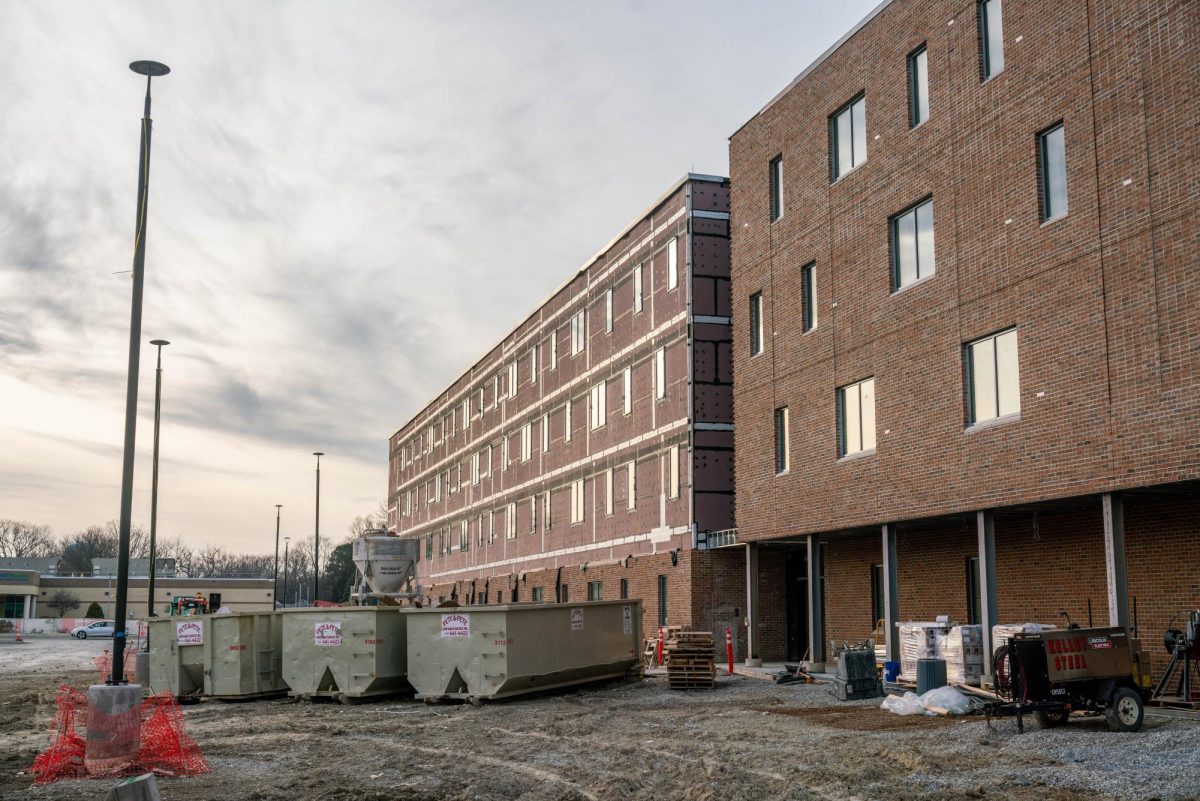On April 19, students enrolled in POLT 411: Practicum in Applied Research, better known as the Oberlin Research Group, traveled to Washington, D.C., to present their semester-long research project to the U.S. State Department. The ORG, led by Robert S. Danforth Professor of Politics Eve Sandberg, allows students to participate in State Department-sanctioned research.
In D.C., the ORG cohort of spring 2023 presented alongside the current POLT 411 class. Many recent Oberlin graduates from the class of 2023 reunited with current students as they presented their findings. Oberlin presented their two research projects, “AWE(some) Data Deep Dive in Africa on Women’s Entrepreneurship” (2023) and “The Impact of Innovation: Understanding the Dynamics Driving Regional Innovation Hubs” (2024).
Every year, colleges and universities bid on research topics that the State Department offers. Around 50 institutions, including Oberlin, participate in this partnership. Last year, the spring 2023 ORG explored the impact of grants from the Academy of Women Entrepreneurs to female business owners in various African nations.
“We wrote a consultancy briefing book last year on the effects of the grants, how the training might be improved, and whether the grant should be expanded or if a second round of grants should be given,” Sandberg said. “It was very well-received, and we got great feedback from our client. She used it as the basis of one of her reports to send to the upper echelons of the State Department.”
This year, ORG is working for the Office of Science and Technology, exploring attributes of leading countries in technology and innovation. The Biden administration identified 31 research hubs as essential to U.S. economic productivity and leadership, including the polymer hub in Northeast Ohio, which ORG focused on.
Law students and Ph.D. candidates, who also research topics requested by the State Department, presented alongside Oberlin’s teams. Members of the State Department sat in on all of the presentations and provided feedback and questions.
“I remember the State Department official who was moderating was specifically interested in the work of higher education institutions in the development of regional innovation hubs,” College second-year Carlota Lorán López said. “So, that was something she highlighted, and we have looked more into it since the presentation.”
After they presented their research, students on the trip met one-on-one with State Department workers to ask about pathways into careers in the State Department or other government agencies — not just in diplomacy, but in culture, the arts, administration, logistics, or law. Many agreed to be future contacts for students as they navigate their careers.
“I can tell you over the years, student after student has graduated has called me and said, [The ORG] is what they mainly talked about at my job interview,’” Professor Sandberg said. “It’s been a good experience for them to see what working with others in a team is like. It’s not structured as a regular class — I can’t tell them what to research. Students have to own the project and decide how to go about it, and I can give them as much guidance as I can.”
Participation in the Oberlin Research Group is not exclusive to Politics majors. College third-year Dorothy Knutson, a Studio Art and Politics major, explained that the tight-knit group plays to individual members’ strengths.
“I’m an art major, so I’m doing the graphic design for the report,” Knutson said. “And then someone else, [College second-year] Layla [Wallerstein], is doing the editing because she’s from the Review. We’re just working together. Then there’s this guy [College fourth-year Cal Colbert-Pollack] who does computer science. … He’s doing all this coding to give us these cool graphs.”
The success of the ORG is dependent on the generosity of those who donate their money or offer up their living spaces to students when they travel — over 20 Oberlin alums in the D.C. area offered housing to students for the recent trip. The unique opportunity to participate in undergraduate research also depends on Sandberg’s guidance.
“I am retiring next year,” Sandberg said. “It is my hope that the department will have someone continue with this. We have very generous alumni who have either been through the program or been part of ORG who donate, … so we’re very grateful to those people, just like we’re grateful to the alumni that hosted our students in Washington for making it possible.”








